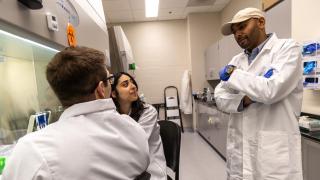
The report, “Growing Together or Drifting Apart? Economic Well-Being in Washtenaw County’s new “Knowledge Economy,” was issued Monday.
Researchers found broad-based declining wages from 2005-2013 that cut across worker status, age and education. The decline came even as jobs rose by 23 percent in the knowledge economy sector—including jobs in education and healthcare.
“Many people assume that growth in high-skill knowledge jobs will drive economic growth. There’s a grain of truth there in that you can sometimes find very high-paying jobs when you attain a certain education level,” said CLCS Continuing Education Specialist David Reynolds, who worked with U-M Ann Arbor researchers on the report. “But we’ve also seen that, left to its own devices, growth in the knowledge economy will produce a lot of inequality.”
Reynolds and his colleagues detailed that rising inequality in the report. While median real wages decreased by 9 percent during the period studied, the lowest-earning workers experienced the greatest decline in wages. By 2013, nearly a quarter of all Washtenaw County households did not earn enough to meet basic needs like housing and food.
“This is not a sustainable pattern,” Reynolds said. “In communities where you have both this large inequality and this wholesale decline throughout the population—this does not lead to sustained growth.”
The researchers recommended the county convene a task force of political, business and community leaders. The task force will look at how other communities have addressed similar situations and make recommendations for Washtenaw County.
“For the knowledge economy to live up to its full potential, you need a conscious intervention. If you don’t plan for it, it’s not going to spontaneously produce shared prosperity,” Reynolds said. “There is enormous potential here, but we have to get deliberate about it.”
The full report is available on the Center for Labor and Community Studies webpage.




